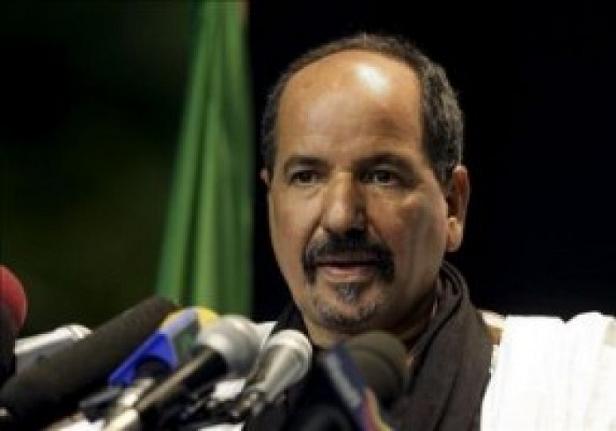Western Sahara: a precarious status quo North African Dispatches
New in Ceasefire, North African Dispatches - Posted on Friday, January 27, 2012 10:11 - 0 Comments
By Kateb Salim
POLISARIO chairman Mohamed Abdelaziz
December 2011 saw the re-election of outgoing POLISARIO chairman Mohamed Abdelaziz by a whopping 96% of the Front’s 1622 seat congress. The reelection comes at a difficult time for ‘Africa’s last colony’ as any meaningful negotiations with Morocco, the occupying power, remain at a standstill. More importantly, the POLISARIO has recently struggled to rid itself of media campaigns emanating from neighbouring Mali and Morocco alleging supposed ties between its organisation’s members and Al Qaeda in the Maghreb (AQMI).
The supposed involvement of members of the Saharawi camps in Tindouf (South-West Algeria) in the kidnapping of two French citizens and three other European aid workers were presented by Mali-based media and officials as proof of POLISARIO’s ties to regional terrorist organisations and drug networks; but material evidence for this theory has yet to be presented by any of the accusing parties. These claims thus remain, for now, little more than a talking point for Moroccan officials aiming to downplay POLISARIO as a legitimate political actor.
The general criticism targeted at the recent elections resides in Abdelaziz’s longevity at the helm of the Saharawi independence movement, which he has headed – virtually unopposed – since the death of Mustapha el Ouali Sayed’s in 1976.
Mahjoub Ould Saleck , the founder of a movement known as Khatt Echahid (the martyr’s route) and highly critical of the POLISARIO, recently spoke out against Abdelaziz’s reelection as a ‘farce’. His criticism, however, has yet to truly gain any significant traction or challenge the POLISARIO’s key tenors.
Opponents of the ‘revolutionary establishment’ such as Saleck face a major obstacle: POLISARIO is recognised by the United Nations and a host of countries as the sole and legitimate representative of the Sahrawi people and its aspirations. The likelihood of Ould Saleck’s criticism ever becoming mainstream either domestically and abroad, remains highly improbable. What’s more, Saleck is perceived by many Saharawis as an even greater threat to the cause of independence for his outspoken support of the Moroccan autonomy plan.
Mohamed Abdelaziz has used an unexpected diplomatic victory in recent months to reaffirm his popularity. Last month, the European Parliament voted to reject a controversial fisheries agreement with Morocco citing the inability of the Moroccan Kingdom to demonstrate how this agreement would benefit the local Saharawi population.
Indeed, home to substantial primary resources (such as phosphate mines and fish), Western Sahara has long been subjected to the spoliation of its riches by European companies that turned a blind eye to the Kingdom’s expansionist and repressive policies with local populations. Under immense pressure emanating from human rights NGO’s worldwide, the parliaments MEP’s voted to discontinue the agreement.
Despite these minor diplomatic victories, younger Saharawis living abroad in countries such as Spain, Cuba and Mauritania (popular destinations for the diaspora seeking education or a better life) have become somewhat frustrated with the POLISARIO’s negotiated solutions and have begun advocating a return to the guerrilla tactics of old. In a Guardian Op-Ed piece dating back to October,7th 2010, POLISARIO chairman Abdelaziz, alongside Jen Orback, recognised the challenge presented by this growing impatience:
“After nearly 20 years of occupation, people have begun to tire of false promises and of waiting. There is more and more talk of resuming the armed struggle. Our estimation is that a majority of the people want the Polisario Front to reconsider taking up arms. It both hurts and worries us. In our roles, we have consistently advocated peaceful solutions and diplomatic methods. It is with great sadness that we see that the Sahrawis no longer believe in the possibility of restoring their country through peaceful means. At the same time, we understand the dejection that the Sahrawis feel.”
Beyond the circumstances of Abdelaziz’s reelection, developments in the Western Sahara help highlight the need to reach a solution based on the UN’s plan for a referendum of self-determination. The current stalemate is no solution: desperation, if left to fester amongst the Saharawi youth, will surely result in another avoidable upsurge in violence throughout the sub-region.



Leave a Reply